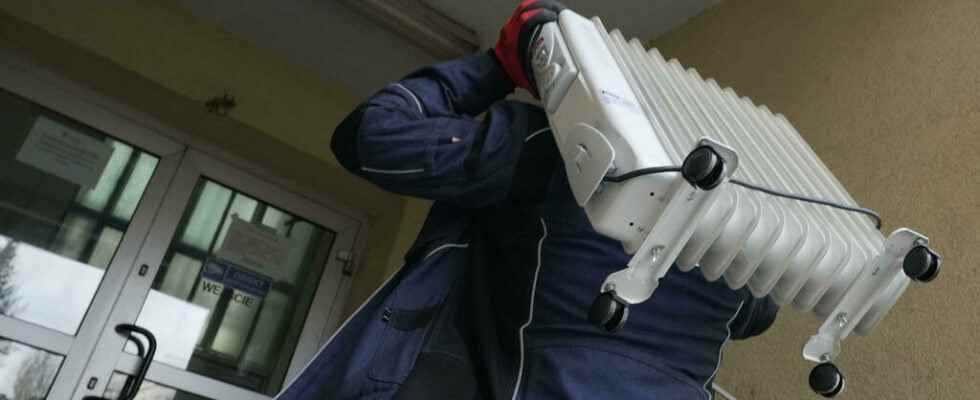Inflation in Poland is at its highest level for 20 years: 8.6% for the month of December alone. The government refers to “ external factors and announced a new series of measures to curb it. But economists question their long-term effectiveness.
At the semi-covered Hala Mirowska market in central Warsaw, Anna Rzeczniszka and her husband have been running a small butcher’s shop for nearly 20 years. For them, no doubt, inflation is clearly visible. “ Sure, all the poultry has increased, everything! Be it chicken, turkey, but also beef. »Her husband agrees: Yes, the beef has increased a lot, I would say it’s around 30-45%. »
In Poland, the prices of certain foodstuffs, such as meat, butter, sugar or even eggs, have increased by 10% to 30%. Fuel prices are also on the rise. The price of gas has increased by 54% and that of electricity by 24%.
“One or two cups of water”
In an alley next to the market, Aleksandra, a 65-year-old from Warsaw confides. ” I’m especially worried about the electricity and gas price increases that begin this month. I use gas for my stove. If it continues to rise, I’ll start to be careful, heating maybe just two cups of water instead of a whole teapot. We will see ! »
The ruling conservative National Law and Justice Party repeated: Inflation is largely explained by external factors, such as high gas prices from Russia as well as European climate policy and the price of carbon. »
Remarks to qualify for the economist Hannah Cichy: “ Our government thinks that the rising energy prices, because of the rising price of carbon permits, are the fault of the European Union. But it was this government and the previous one that chose to use dirty, coal-based energy years ago. We neglected the green transition and now we are paying the price. »
An anti-inflation shield
The economist also points to the reduction in the labor force in Poland, leading to upward pressure on wages, which inflates inflation. To mitigate the rise in prices, the government announced an anti-inflation shield with a reduced VAT on food products or even electricity and gas.
A short-term solution, according to the economist. ” These are temporary measures. This means that at some point they will have to be withdrawn and inflation will rise again. The measures are to extend until the end of July. But if inflation is at 6% in July, how will the government be able to tell its voters that next month it will be at 8%? »
Especially since the next parliamentary elections are scheduled for next year in the country.
